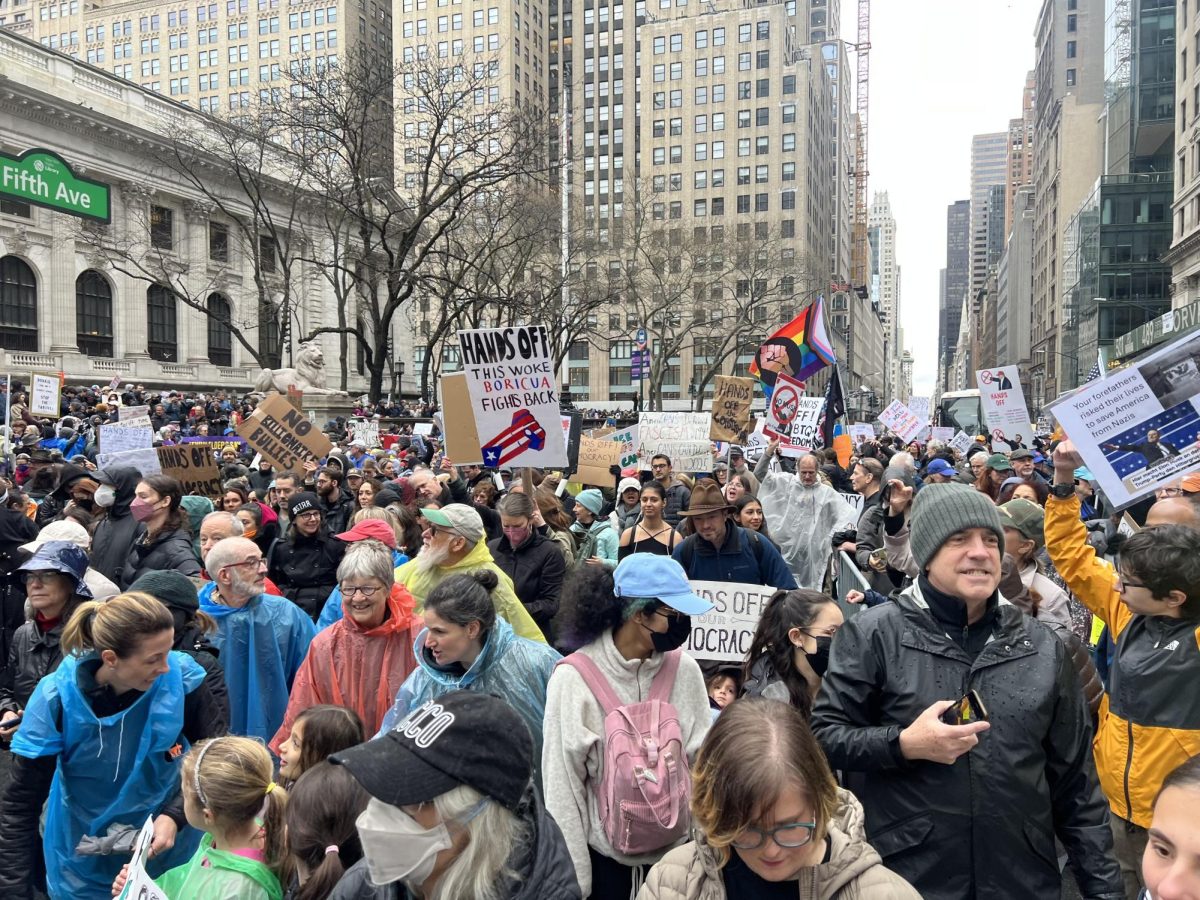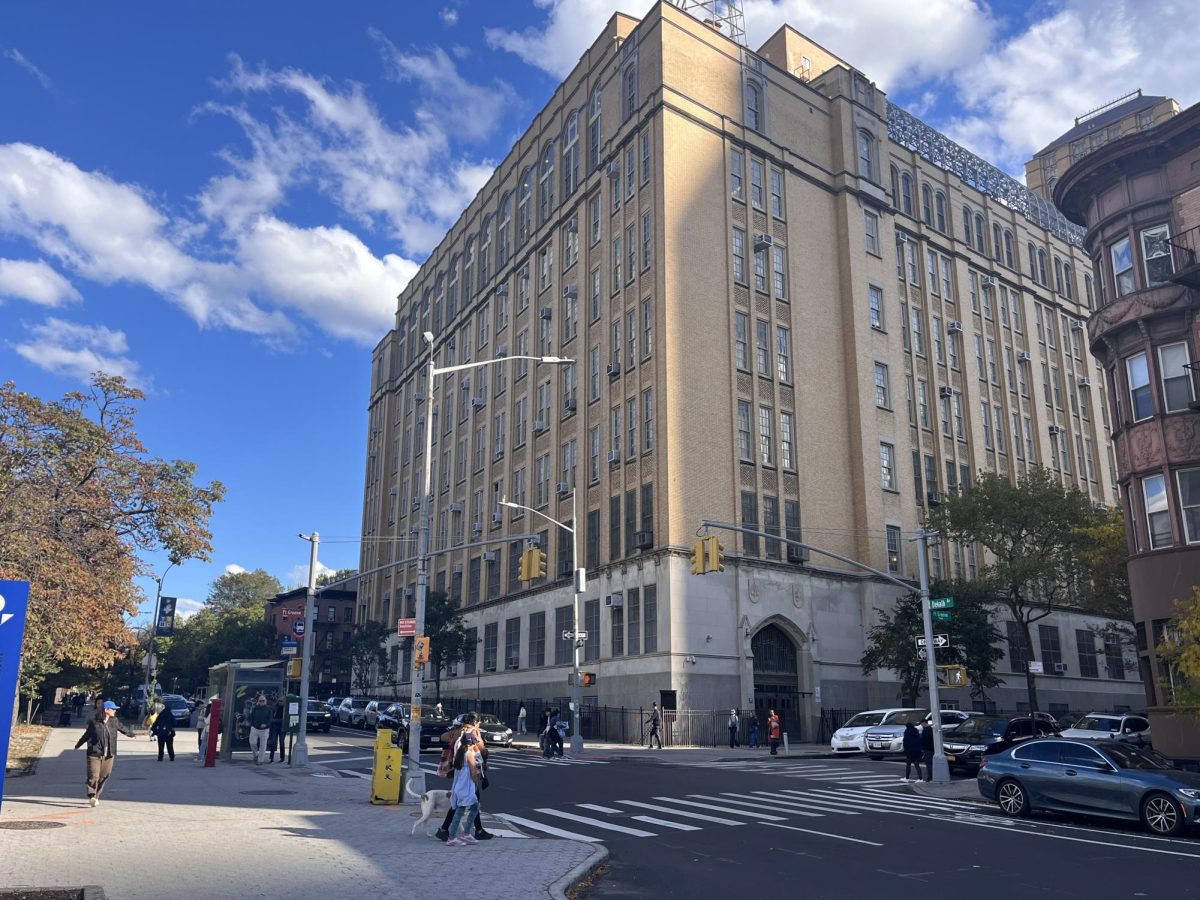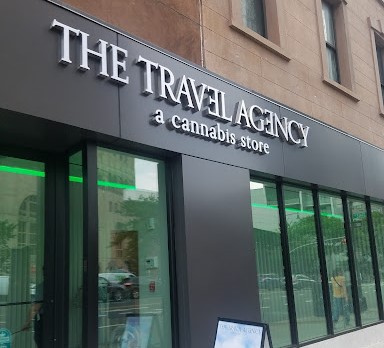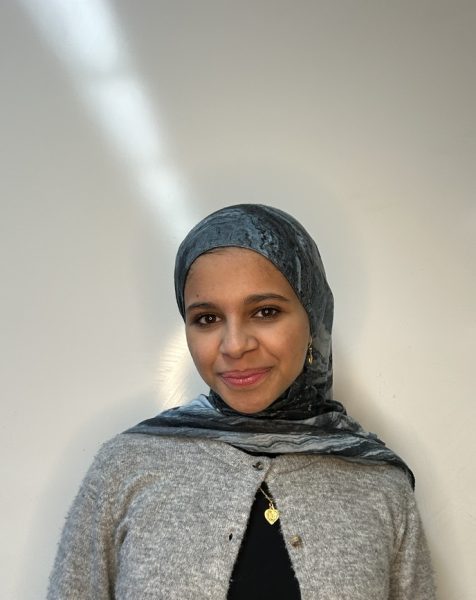The recreational use of marijuana in New York state was legalized on March 31, 2021, making New York the 16th of 17 U.S. states where it is currently legal. Since then, only 60 individual shops have been approved by the New York State Office of Cannabis Management for the legal sale of marijuana. These shops are expected to generate significant revenue for the state as the demand for marijuana products continues to rise. However, the slow approval process has led to citywide concerns from officials about limited legal access and widespread law-breaking, tax evasion and underage sales by illegal shops.
The illegal use of cannabis products is most prominent among young people under the legal age of 21, such as high schoolers. As of the 2023-2024 school year, there are two “weed” shops within walking distance of Brooklyn Tech alone.
Principal David Newman accompanied two police officers to visit both shops when they first opened to determine if they were legitimate and would be regularly monitored by neighborhood community police officers after dismissal times.
Although these stores do not have licenses to sell marijuana, they do have legal business licenses that were shown to Newman and the police, making it unlikely for the stores to be shut down any time soon.
Newman requested that officers be posted at the shops specifically to ensure that they maintain legal practices and not sell to students.
The maximum fine for selling over five pounds of cannabis products is $10,000, while the maximum fine for selling to a minor in New York state is $1,000. Newman shared his understanding that “about $25 million of fines have been levied against New York City businesses for selling marijuana without a license, and they’ve only collected [$22,500] in fines so far.”
Illegal marijuana shops are not just a problem near Tech, but all around New York City. Beyond the 12 approved shops, there are at least three thousand illegal stores in the five boroughs, many of which openly sell cannabis products to teenagers.
“These businesses must adhere to all of the state’s strict regulations for the sale of cannabis, which explicitly include getting licensed and not selling to minors,” stated New York City Corporation Counsel Sylvia O. Hinds-Radix in an announcement regarding unlicensed cannabis dispensaries. “[The NYPD and the New York City Sheriff] work to shut them down so our communities and youth are not at risk.”
The issue of underage access to marijuana extends beyond illegal brick-and-mortar shops into a shadowy internet market. In Betty Carter Park at Fulton and Lafayette Avenues, known to Tech students as “the triangle,” a sign taped to a lamppost advertised “We Deliver Fast and Affordable” with a QR code to a private Instagram account for the Brooklyn Loud Cannabis Club. When an anonymous Tech student requested to follow the account, it allowed them access despite their account being public and clearly stating in their profile that they are a high school student. When asked about their account and their business, the club did not respond.

Given health concerns about easy access to unregulated cannabis products, parents and teachers at Tech have become more vigilant about educating young people about their choices. Last winter, Ms. Ramona Richardson, the counselor who runs Substance Prevention and Rehabilitation through Knowledge (SPARK) at Brooklyn Tech, convened a week of school wide assemblies on the dangers of drug abuse, to which teenagers are highly susceptible if they are exposed early on to drugs like marijuana. Ms. Ramona emphasized the importance of making informed and responsible choices when it comes to substance use, urging students to avoid illegal shops and the use of marijuana.
SPARK, now known as the SAPIS (Substance Abuse Prevention and Intervention Specialists) program, remains open to all students to help address issues regarding family, attendance, academic well-being, self-esteem, grief, and relationship problems. SAPIS also assists students with drug abuse issues, focused on two main goals of prevention and intervention.
The prevention aspect reaches students in visits to sophomore health classes to discuss the negative effects associated with substances like marijuana. This program is meant to steer students away from drug use, but when it comes to intervention, Ms. Ramona keeps her door in room 7C7, in the center cafeteria, open to any students who feel like they may need help.
“I want to create a space at Tech where [students] will feel safe talking about these subjects,” said Ms. Ramona. “The confidentiality of my job means that if you’re going to come to me to talk about your problems […] that is something that will stay between us.”
As of September 2024, New York City has increased its efforts to crack down on illegal marijuana sales. Recently, the NYC Department of Small Business Services announced the establishment of a task force, Cannabis NYC, responsible for regulating and supporting legal marijuana sales while creating equitable job opportunities. The state has provided a financial support program for conditional adult-use retail dispensaries (CAURDS). These retail dispensaries are run by people in the justice system and those who have been convicted or related to someone who has been convicted of illegal marijuana possession prior to the legalization in March 2021. The Empire State Development, New York State’s main economic development agency, has granted $5 million for CAURDS to help with delays and startup costs for their business.
Mayor Eric Adams has also launched “Operation Padlock to Protect” which gives law enforcement officers the ability to investigate and padlock any illegal cannabis shops. Since its launch, almost $108 million in penalties and $33 million in illegal products have been seized. These efforts work to ensure that the legal cannabis market in New York is regulated and safe for consumers. By cracking down on illegal shops, the city hopes to promote a thriving and legitimate industry.








































